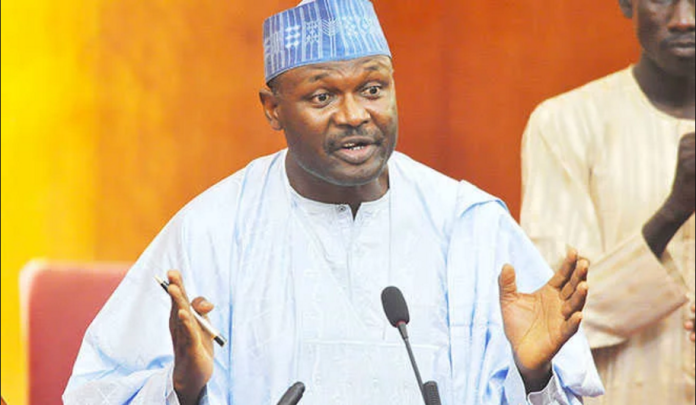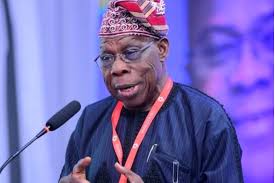Assistant Politics Editor, DANIEL KANU, situates the growing political inclination to declaration of elections inconclusive by INEC.
It has become a growing political trend in Nigeria’s electoral process to declare elections in certain areas inconclusive. This has led to having supplementary elections. It is a development that has divided most political analysts.
Some claim that declaring elections inconclusive is safer than announcing one with massive distortion. The reason given for inconclusive decisions by the electoral umpire, the Independent National Electoral Commission (INEC), has always been same: violence, abduction of electoral officials, ballot box snatching or certain irregularities discovered in the areas at the time of the election.
The word ‘inconclusive’ seems to have become a new register introduced into Nigeria’s election lexicon by the INEC. The ‘inconclusive’ theory states that when there is no election in a particular community, either as a result of insecurity (violence), major irregularities, failure of INEC to make available election materials in the area, the Commission will declare such election inconclusive, and fix another date for a supplementary poll.
Commentators contend that this ‘inconclusive’ concept is believed to have sneaked into national prominence in the November 2013 Anambra State Governorship Election, and was also brought to the fore during the Ilaje/Ese-Odo bye-election in Ondo State in 2014.
Of grave concern now to political observers and lovers of good governance is that the spate at which elections conducted by INEC across the nation have been declared ‘inconclusive’ calls for apprehension. The danger, they claim, is that the electoral body is gradually and unwittingly building a foundation of catastrophe for future general elections if nothing drastic is done to arrest the emerging ugly trend.
Extracting inconclusive states
Aside the case of Anambra and Ondo states, recent occurrences in 2015 show the cases of Imo, Kogi and Bayelsa polls.
In the case of Imo, INEC said it declared the election inconclusive due to the large amount of voided votes compared with the margin of win by the All Progressives Congress (APC) governorship candidate, Rochas Okorocha, as against his Peoples Democratic Party (PDP) conterpart, Emeka Ihedioha.
In the case of Bayelsa, following the cancellation of elections in the Southern Ijaw Local Government Area, INEC also declared the Bayelsa polls which took place on Saturday, December 5, 2015 inconclusive.
One of the state’s eight LGAs in Southern Ijaw was cancelled. INEC officially stated that there was “glaring cases of electoral malpractices characterised by ballot box snatching and thuggery.”
Prior to the declaration of the poll as inconclusive, INEC had announced results of seven out of the eight LGAs in the state. Based on the announcement, the incumbent Governor Seriake Dickson of the PDP had won in six LGAs results declared by INEC. The APC candidate, Timipre Sylva, had won in just one.
The electoral umpire told TheNiche that what happened in Southern Ijaw was a negation of global best practices in election conduct and that it was necessary to cancel the election there to enthrone credibility in the process.
The mainly-riverine Southern Ijaw is said to be the biggest council in the state. It has over 120,000 voting strength, which was believed to be the decider.
In Kogi’s situation, INEC declared its governorship election inconclusive because, like in the case of Imo, the number of cancelled votes was greater than the margin between the votes for the two main contenders, Abubakar Audu (who died after the main election) of the APC and Idris Wada of the PDP.
The results of the elections from 21 LGAs in the state announced by INEC showed that Audu (who later died before he was declared winner) polled a total of 240,867 votes while Wada had 199,514.
The Returning Officer, Emmanuel Kucha, said the margin between the votes for the two leading contenders amounted to 41,353 while the total number of cancelled votes is 49,953 from 91 polling units, in 18 local government areas.
The implication is that the race was far from being won, as the PDP contender can change the probability of APC victory if voting was over 95 per cent to his favour.
Crux of the matter
TheNiche checks show that most of the areas that suffer inconclusive elections over the years have been flashpoints but nurtured by politicians to gain advantage over their opponents.
Some observers tend to pass the blame on the security operatives’ inability to rise beyond the challenge as well as INEC’s helplessness in terms of adequate preparation for elections.
Public commentator, Adisa Hussein, said it would be very difficult not to have inconclusive election because nothing serious has been done to any of the flashpoints identified.
Said Hussein: “Those riverine areas, over the years, have been used to rig elections. In fact, there is always no election in those areas, but the stronger politician that controls the area uses the purported votes from the area to pad up to win elections.
“The riverine areas are always not accessible and INEC has no solution yet; so anything goes there. People that have won elections there make use of thugs to maim, intimidate and kill perceived opponents. We will remain with that danger for a long time, as I do not see the new INEC chairman doing anything in that line.”
And the people speak
Former Governor of Old Kaduna State, Balarabe Musa, is of the view that there is nothing wrong with declaring an election inconclusive, so far there is sufficient evidence of insecurity or disturbing irregularity during the exercise which marred its outcome.
He told TheNiche that the situation is a consequence of an undemocratic electoral process, saying that much needs to be done to ensure that elections are credible and votes count.
Musa said: “I do not see any danger in it. For me, declaring election inconclusive is better than announcing a rigged election result. What we are witnessing is a product or consequence of undemocratic electoral process. There are politicians who want to win at all costs and when their opponent equally has power to contend it, violence will erupt. You cannot blame INEC under such a situation where there is insecurity to continue the election. It is safer to have election declared inconclusive rather than cheating in the election and be declared the winner.
“I support INEC declaring election inconclusive where it can be proved that there is sufficient evidence of violence or irregularity. INEC is empowered or entitled to declare the winner of an election, and if they have such power, it is only normal they can stop an election that has ample evidence of rigging, wrongdoing or loophole. You can see the election we had in 2007 and 2011 where both the INEC and the court had no sufficient proof, but they declared winners. That is sad.”
With a point of departure from the views of Musa, President-General, Middle Belt Indigenous Peoples Network, Abuka Omababa, said the situation poses serious danger to the nation’s electoral and political process.
This, according to him, is because it’s something that concerns leadership and people seem to be passionate to those that want to govern them.
Omababa, a legal practitioner, said election is a sensitive matter that must be taken seriously, insisting that its management has caused massive violence and wars in some countries where it was not well managed.
“The issue of declaring election inconclusive poses a serious problem. It has also raised critical issues. It is an issue that concerns leadership and the people want to choose their leaders. So if you want to rig yourself into office, it may result into great violence that may lead to war.
“You can see what has happened to some countries like Burundi or in Rwanda concerning election. So election is a very critical issue. The issue of declaring election inconclusive has raised a lot of issues, legally. Kogi State is a good example. You know there is a lot of loopholes in our constitution. It is the reason we are calling for the restructuring of the country. There is no constitutional provision for INEC declaring election inconclusive.
“Except we run a true federation, the incident will continue. We must make the centre weak and the regions stronger, to be able to control their resources. In those volatile areas, you can notice that there is this struggle for power; the person that gets it takes all. So it will be very difficult to control those areas either by the security operatives or the INEC. The powers there are doing everything within their reach, including killing, to outdo other opponents. We need to tackle so many things that are not in the constitution, the reason we need restructuring in all sectors, including our constitution.
Last line
Political watchers agree that it is vital to stress that peaceful and credible elections are necessary to consolidate and deepen the country’s democracy.
Also, they contend that it is important to note that credible elections do not begin and end with only the procedures of INEC put in place, but with all stakeholders getting involved judiciously.













